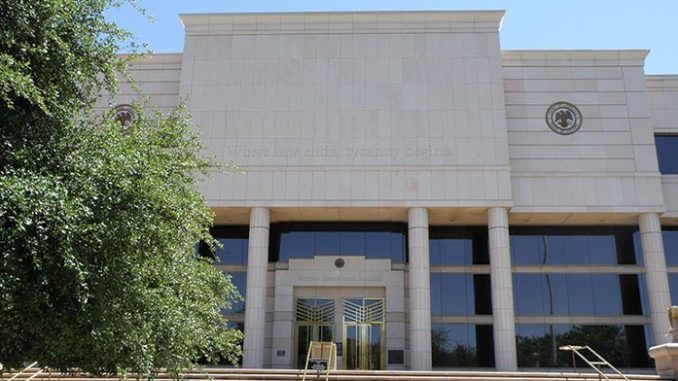
Arizona’s largest business organization is applauding the adoption by the Arizona Supreme Court of an amendment to the rules of civil procedure that will dramatically increase the transparency over who is funding litigation.
The Arizona Chamber of Commerce thanked the court for adopting the amendment that involves third-party litigation funding (TPLF), also referred to as lawsuit lending.
According to the American Security Project, “Third-party litigation financing (TPLF) allows outside investors to fund the attorneys’ fees and expenses incurred in another party’s lawsuit. While TPLF can broaden access to legal recourse, its unregulated and generally unreported status raises concerns that U.S. adversaries and competitors could be using this practice to steal or misappropriate intellectual property (IP), obtain confidential business or industry information, and harass U.S. businesses and even entire industries without oversight or accountability.
The Chamber says that before this action by the Arizona Supreme Court, judges and defendants had very little knowledge of who was financing a lawsuit, even if the financier was from out of the country.
“These loans have a distorting effect on lawsuits. They drive up costs and they extend the length of litigation, as plaintiffs attempt not only to settle their case but also to pay off their loan,” Arizona Chamber of Commerce & Industry President and CEO Danny Seiden said. “For too long, Arizona courtrooms were wide open to unscrupulous lenders trying to score a quick buck or to foreign funders scheming to gain an advantage against a competitor. Thanks to today’s action by the Arizona Supreme Court, there will finally be greater disclosure to all parties that a lawsuit is being funded by an outside entity.”
The Chamber has made increasing transparency over TPLF a central part of its civil justice reform agenda.
In addition to leading business community support for adoption of the court rule change, the Chamber this year successfully advocated for passage of S.B. 1215, legislation signed into law by Gov. Katie Hobbs that, among other things:
- Prohibited lending by foreign adversaries: The bill prohibits litigation funding directly or indirectly financed by a “foreign entity of concern,” including entities affiliated with governments identified by federal authorities as national security threats or placed on terrorism or sanctions lists.
- Imposed limits on control: Litigation financiers are barred from directing or influencing decisions in a case, including legal strategy, attorney selection, or settlements. Control remains solely with the named party and counsel of record.
- Requires disclosure of referral fees: Any commission, referral fee, or consideration paid to attorneys or health care providers for referring a client must be disclosed in writing and separately acknowledged by the borrower before the agreement is executed.
S.B. 1215, coupled with the required disclosure of third-party litigation funding called for by the new Supreme Court rule, greatly enhances the integrity of Arizona’s legal system.
The Arizona Supreme Court’s action is the first time any state court in the country has sought to increase transparency over TPLF.
“The Chamber thanks the Court for adopting this important rule change,” Seiden said. “They have made Arizona a national leader in ensuring our justice system is better protected against predatory actors.”
Beginning Jan. 1, 2026, the new disclosure rule will apply in all civil cases where litigation funding agreements are involved.

ITS ABOUT TIME! WHERE YA BEEN !